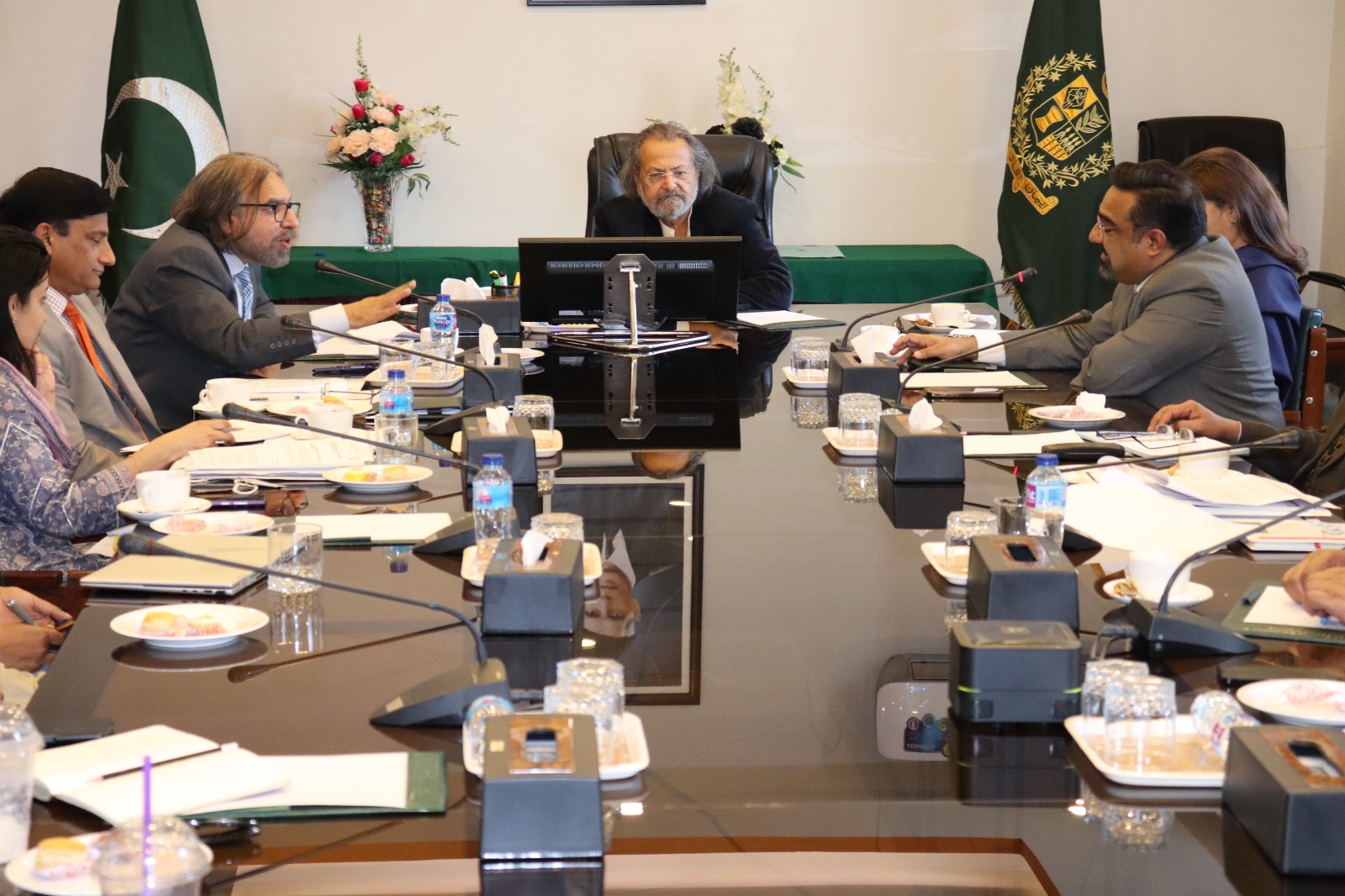The 2nd Program Steering Committee Meeting of the Prime Minister's Youth Skill Development Program (PMYSDP) convened at the Ministry of Federal Education and Professional Development

The meeting was chaired by Mr. Madad Ali Sindhi, the Federal Minister for Education and Professional Development, the meeting played a pivotal role in facilitating essential discussions to propel the program's objectives forward. Madad Ali Sindhi said that this was the second meeting of NAVTTC steering committee under his tenure as minister. He pointed out that this is also the second meeting in five years. He highlighted the importance of this committee and urged the upcoming government to give it due importance as well. Madad Ali said that in the last meeting he had increased the quota of women which has been implemented and today he has directed the chairperson to increase the disability and transgender quota as well in all NAVTTC programs. Madad Ali said that the domain of NAVTTC should be increased to provinces as well. He said that it would be prudent to include universities in increasing the scope of NAVTTC as well. Madad Ali also took notice of and expressed great displeasure at the absence of Secretary Education Punjab and Sindh.
The Executive Director NAVTTC/Secretary of the committee, Muhammad Aamir Jan, thoroughly briefed the committee on the current status/progress of PMYSDP (2023-2024) project, taking stock of achievements and outlining future goals. A particularly significant decision was made regarding the integration of the High-Tech IT and High-End IT Training Components. The committee endorsed the consolidation and strategic reallocation of seats, not only to enrich industrial training opportunities but also to lay the groundwork for a groundbreaking collaboration with esteemed universities like COMSATS, NUST, NUML, and NSU to facilitate the pilot project being implemented with the Federal Directorate of Education (FDE).
This collaborative effort is crafted to launch High-Impact IT Training with 16 FDE Colleges, intending to bridge the gap between academia and industry. The initiative aims to provide cutting-edge IT skills to the youth, ensuring their relevance in the ever-evolving job market.
Mr. Waseem Ajmal, Secretary Ministry of Federal Education, endorsed the pilot program and emphasized that the modalities may be formulated with the help of Pakistan Software Export Board (PSEB) and Pakistan IT Industry Association (P@SHA).
In a bid to streamline implementation, the committee sanctioned the exemption of Bank/Insurance Guarantee for TEVTA, PVTC, PWDs, and other public institutes, excluding public sector universities. Furthermore, various courses under the program, spanning High-Tech IT, High-End IT Training Component, Hospitality, Languages, Care Workers, and Gym/Sports Trainer, will now confer international certification, thereby enhancing the global recognition of the program.
Ms. Gulmina Bilal Ahmad, Chairperson NAVTTC, expressed optimism about the program, emphasizing, "We aspire for these 56,000 youth to become valuable assets for the country. Our initiatives are geared towards inclusivity, accommodating youth from all strata of society." She highlighted NAVTTC's active affirmative action for transgender and Persons with Disabilities (PWDs), offering exemptions from criteria approved by the steering committee and NAVTTC.
In another significant initiative focusing on High-Impact Trainings in globally in-demand IT skills such as AI, Data Science, and Blockchain, Ms. Gulmina Bilal Ahmad noted, "Our pilot program, catering to 500 to 700 youth in collaboration with FDE Colleges, aims to upskill the youth, enhancing their prospects for better global job opportunities and contributing to the country's remittances. Additionally, we are introducing international certifications for IT programs to boost the global recognition and consumption of Pakistani youth."
The Minister for Federal Education and Professional Training provided his approval to all agenda points and encouraged the committee to replicate successful initiatives in the provinces upon completion of the pilot project.
